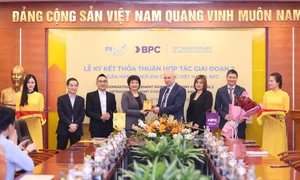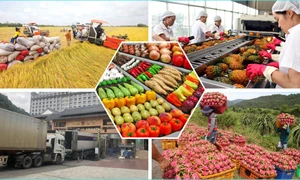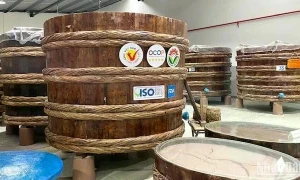
At the event, Deputy Director of the Vietnam E-commerce and Digital Economy Agency Nguyen Thi Minh Huyen said that e-commerce has been developing strongly in Vietnam, and become an important component of the digital economy.
Retail e-commerce revenue has grown on average 20% in the past ten years, making Vietnam in the 10 ten countries with leading e-commerce expansion rate, she said, highlighting AGS VN’s cross-border e-commerce initiative in the breakthrough era during the 2022-2026 period has helped Vietnamese enterprises conquer the global market.
She went on to say that the agency is carrying out measures to develop the e-commerce market and improve customer confidence in the area as part of the national e-commerce development plan during 2021-2025.
It is joining hands with provincial Departments of Industry and Trade to roll out activities that promote regional e-commerce linkages and improve e-commerce management for localities. The aim is to assist enterprises to go digital and popularise local staples on both domestic and foreign platforms, Huyen added.
She pointed out several barriers to Vietnamese firms to access global e-commerce platforms, including a lack of e-commerce human resources, a lack of information on related regulations of foreign markets, and limitations in enterprise skills and knowledge to build business strategies and brands.
AGS VN head Gijae Seong highlighted the impressive growth of Vietnamese firms’ e-commerce with the number of sold units on Amazon surging over 300% over the past five years, stressing AGS VN will help Vietnam with e-commerce human resources training, improvement of intrinsic strength for local production, and popularisation of Vietnamese brands.
Meanwhile, Director of the agency’s E-commerce Development Centre Nguyen Van Thanh affirmed that the centre will work with AGS VN to arrange e-commerce training and coaching for enterprises, providing them with intensive skills to bolster exports.
Participants at the event discussed the update of the global e-commerce trend and analysed international markets to give enterprises an insight into foreign consumer tastes. They also put forth measures to enhance cross-border e-commerce capacity, including improving human resources quality, logistics and international payment services, and applying digital technology.























